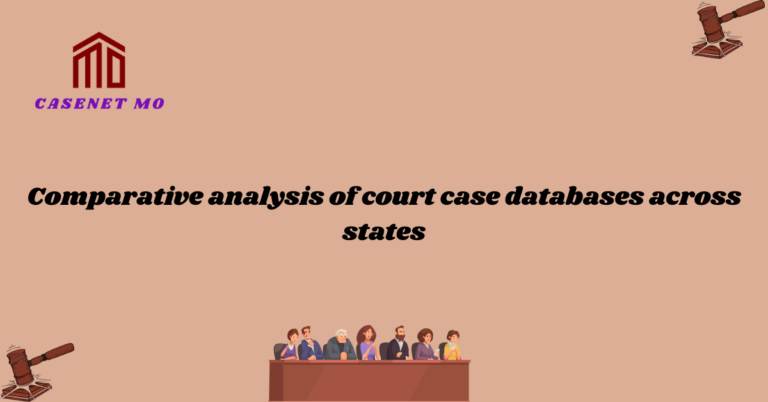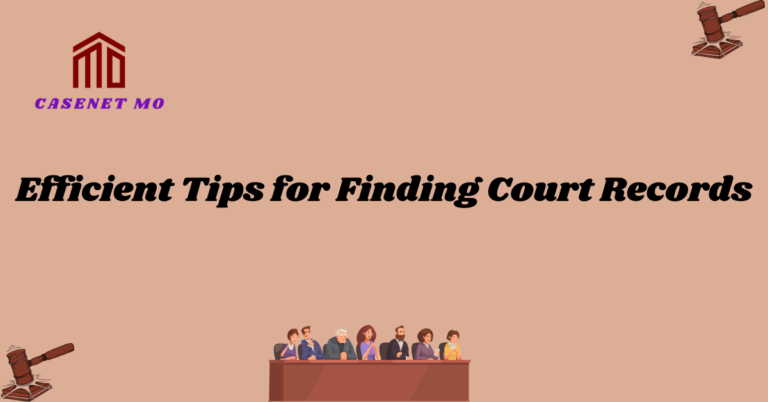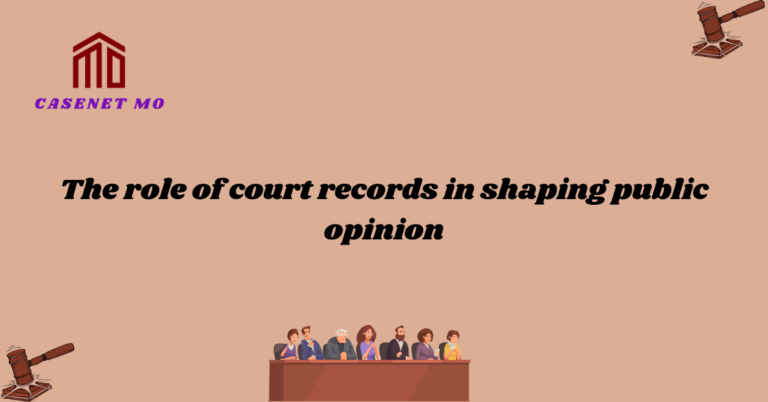The significance of court records in legal advocacy
In the realm of legal advocacy, court records play a pivotal role in shaping the course of justice. These invaluable documents not only provide a comprehensive account of legal proceedings but also offer a window into the intricate workings of the judicial system. With their meticulous record-keeping and attention to detail, court records serve as a crucial resource for attorneys, judges, and legal professionals alike.
By delving into court records, legal practitioners gain access to a wealth of information that can make or break a case. From transcripts of hearings and depositions to evidence submitted and rulings made, these records offer a treasure trove of insights that can bolster arguments, challenge opposing counsel, and ultimately sway the outcome of a legal dispute. In the intricate dance of litigation, court records provide a solid foundation upon which legal strategies are built, making them an indispensable tool in the pursuit of justice.
The Importance of Thorough Documentation
In the realm of legal advocacy, court records play a pivotal role in shaping the course of justice. These invaluable documents not only provide a comprehensive account of legal proceedings but also offer a window into the intricate workings of the judicial system. With their meticulous record-keeping and attention to detail, court records serve as a crucial resource for attorneys, judges, and legal professionals alike.
Unveiling the Power of Court Records
By delving into court records, legal practitioners gain access to a wealth of information that can make or break a case. From transcripts of hearings and depositions to evidence submitted and rulings made, these records offer a treasure trove of insights that can bolster arguments, challenge opposing counsel, and ultimately sway the outcome of a legal dispute. In the intricate dance of litigation, court records provide a solid foundation upon which legal strategies are built, making them an indispensable tool in the pursuit of justice.
Transcripts: Unveiling the Verbal Exchange
Transcripts within court records capture the essence of verbal exchanges during hearings, trials, and depositions. These transcripts offer a detailed account of every word spoken, allowing attorneys to analyze the arguments made, identify inconsistencies, and challenge witnesses effectively. By immersing themselves in the transcripts, legal professionals can uncover hidden nuances and gain a deeper understanding of the case at hand.
Evidence: A Glimpse into the Truth
Evidence submitted in court is meticulously documented within court records. Whether it is physical evidence, such as documents or objects, or digital evidence, such as emails or social media posts, these records provide an organized and accessible repository of the evidence presented. By thoroughly examining the evidence, legal practitioners can build compelling narratives, refute claims, and strengthen their client’s positions.
Rulings: The Pathway to Justice
Rulings made by judges are critical elements of court records. These rulings establish legal precedents, outline the judge’s reasoning, and shape the direction of the case. By closely scrutinizing the rulings, legal professionals can identify potential errors, challenge unfavorable decisions, and craft persuasive arguments for appeals or motions.
Discovery: Uncovering Hidden Truths
The discovery process, documented within court records, allows parties to gather information and evidence from each other. This stage of litigation is a crucial opportunity for legal professionals to uncover hidden truths, identify potential witnesses, and establish the foundation for their case. By analyzing discovery records, attorneys can formulate effective strategies that maximize their chances of success.
Appeals: Seeking Redress
Should a case result in an unfavorable ruling, court records become invaluable for the appeals process. Attorneys can meticulously review the records, identify errors or inconsistencies, and craft compelling arguments to challenge the original decision. With their thorough understanding of the case, legal professionals can navigate the complex web of legal procedures and present a persuasive case before the appellate court.
FAQs
What role do court records play in the legal advocacy?
Court records play a pivotal role in shaping the course of justice. They provide a comprehensive account of legal proceedings and offer insights into the intricate workings of the judicial system.
What information can be found in court records?
Court records contain transcripts of hearings and depositions, evidence submitted, and rulings made. They serve as a valuable resource for attorneys, judges, and legal professionals.
How can court records bolster arguments?
By delving into court records, legal practitioners can gain access to a wealth of information. They can analyze arguments made, identify inconsistencies, and challenge witnesses effectively.
What is the significance of evidence within court records?
Evidence submitted in court is meticulously documented within court records. It provides a glimpse into the truth and helps legal professionals build compelling narratives and strengthen their client’s positions.
Why are rulings within court records important?
Rulings made by judges establish legal precedents, outline the judge’s reasoning, and shape the direction of the case. By scrutinizing the rulings, legal professionals can challenge unfavorable decisions and craft persuasive arguments for appeals or motions.
How can attorneys utilize discovery records?
The discovery process, documented within court records, allows attorneys to gather information and evidence from each other. By analyzing discovery records, attorneys can uncover hidden truths and establish a strong foundation for their case.
Conclusion
court records are integral to the pursuit of justice. From transcripts to evidence, and from rulings to discovery, these records provide a comprehensive and detailed account of legal proceedings. By leveraging the wealth of information contained within court records, legal practitioners can build strong cases, challenge opposing counsel, and ultimately ensure that justice is served.







